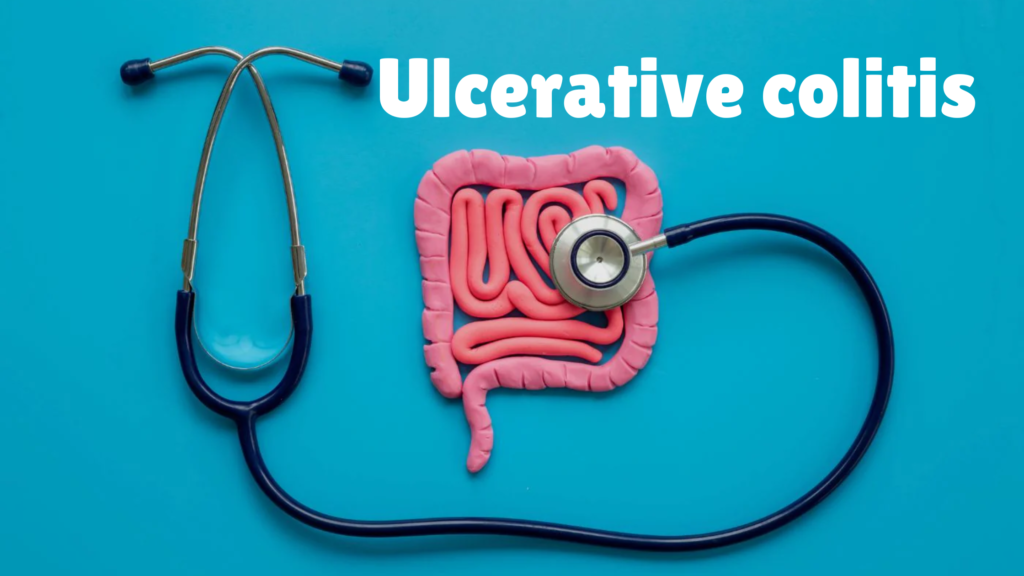🧬 What is Ulcerative Colitis?
Ulcerative colitis is a long-term condition where the lining of the colon becomes inflamed and develops ulcers (sores). This inflammation leads to symptoms like diarrhea, abdominal pain, and bleeding.
📍 Where It Affects
- Only affects the large intestine (colon and rectum)
- Starts at the rectum and can spread upward in a continuous manner
- Unlike Crohn’s disease (another IBD), UC does not affect the small intestine
🚨 Symptoms
- Frequent diarrhea, often with blood or pus
- Abdominal pain and cramping
- Urgent need to defecate
- Fatigue
- Weight loss
- Fever in severe cases
Symptoms may come and go — periods of symptoms are called flares, and symptom-free periods are called remission.
🧠 Causes (Not fully known)
UC likely results from a combination of:
- Immune system malfunction (body attacks its own colon)
- Genetic factors (family history)
- Environmental triggers (diet, stress, infections may worsen it)
🧪 Diagnosis
Doctors may use:
- Colonoscopy (to look inside the colon)
- Stool tests
- Blood tests
- Biopsy (sample of colon tissue)
💊 Treatment Options
While there’s no cure, treatment helps control symptoms:
- Medications:
- Anti-inflammatory drugs (like mesalamine)
- Immunosuppressants
- Biologics (targeted immune therapies)
- Steroids (short-term use)
- Diet changes (avoiding trigger foods)
- Surgery (in severe cases, part or all of the colon may be removed)
❤️ Living with UC
- Many people with UC can live normal, active lives
- Stress management, healthy diet, and regular check-ups help maintain remission
- Support groups and counseling may help cope emotionally
